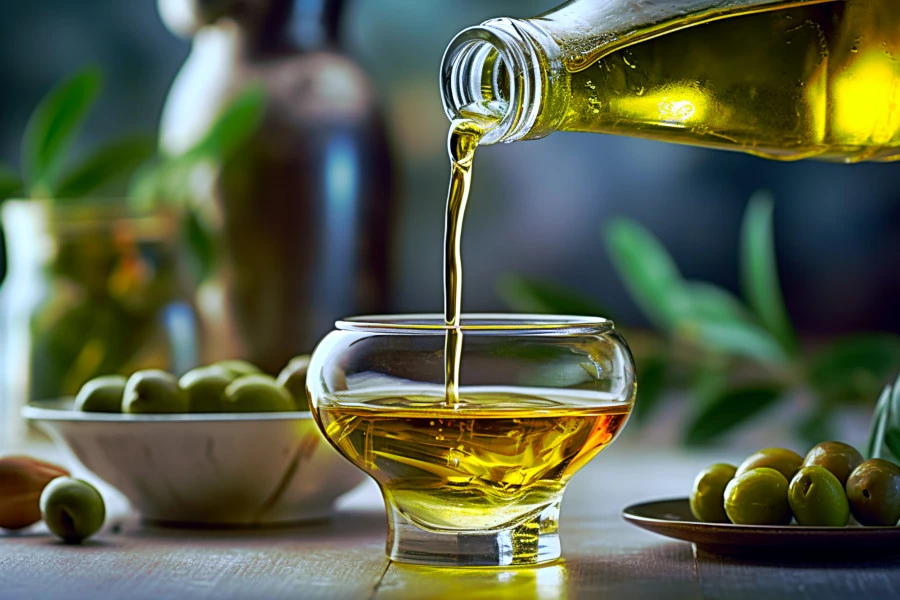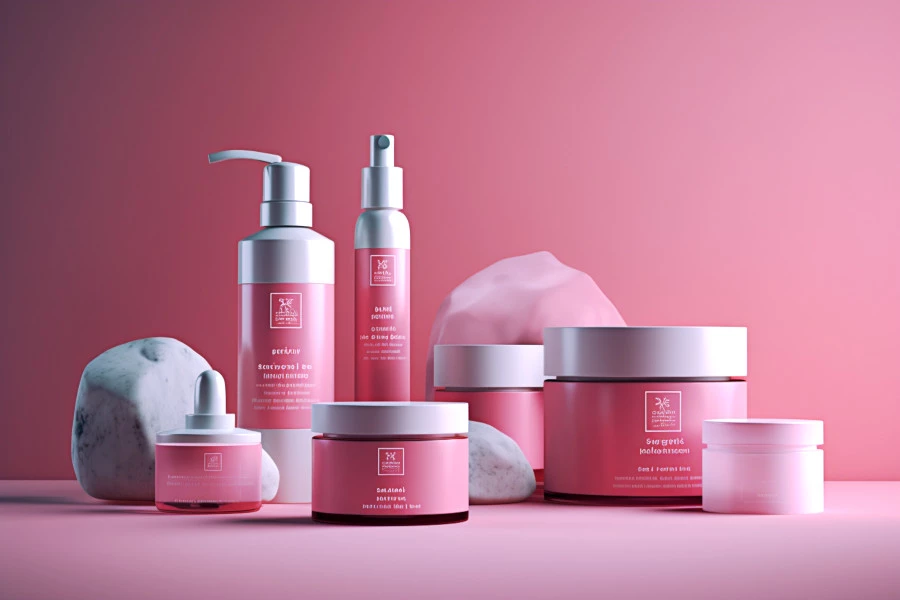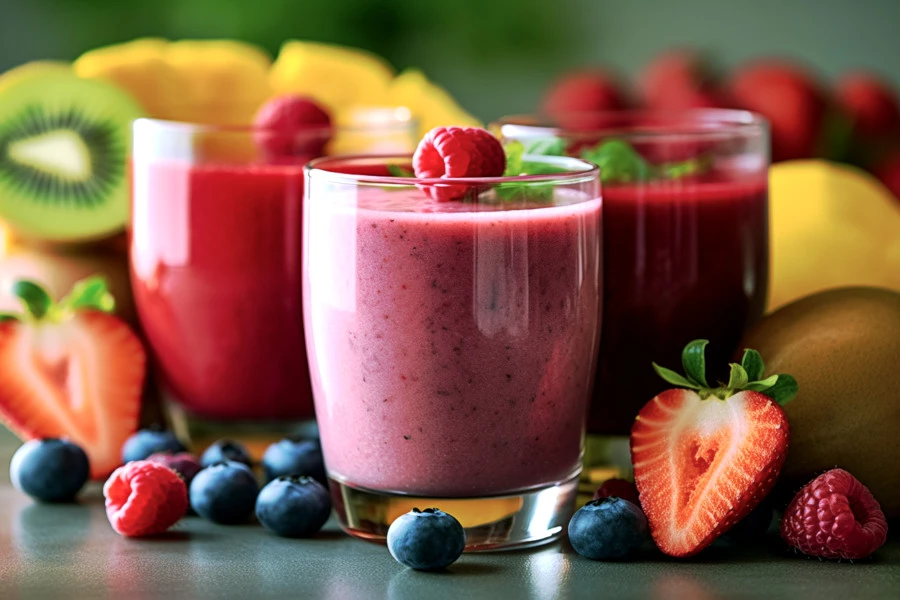Beautiful skin is not a result of serendipity but rather the outcome of understanding your unique skin type and tailoring your skincare routine accordingly.
Oily skin is one of the most common skin types, often characterized by increased sebum production and a glossy appearance.
Despite some challenges, with the right skincare practices and products, you can learn to manage oily skin effectively and embrace its benefits, like natural hydration and an innate youthful glow. This guide is designed to help you understand and care for your skin better.
Not sure about your skin type? Check out: How to Find Your Skin Type and Get Glowing, Radiant Skin!
Here’s a look at everything we’ll be going over in this guide:
Understanding Oily Skin
If you have oily skin then you might be anxious about keeping it healthy, but before you start to worry, let’s try to understand it first.

Here’s a quick look at some topics we need to talk about to be able to understand more about oily skin:
- What is Oily Skin?
- Oily Skin vs Other Skin Types
- Can You Have Both Sensitive and Oily Skin?
- The Dance Between Aging and Oily Skin
What is Oily Skin?
Oily skin is a skin type characterized by excessive sebum production. Sebum, a natural oil produced by your body’s sebaceous glands, is crucial in maintaining skin health by providing hydration and protection.
However, an overproduction of this oil can lead to a shiny appearance and a greasy texture, and it often goes hand in hand with enlarged pores and a tendency towards breakouts.
Oily Skin vs Other Skin Types
Unlike dry skin that lacks natural oils, oily skin has an abundance of it, leading to a shinier complexion.
In contrast to normal skin, which has balanced oil and moisture content, oily skin tends to be oilier in the T-zone – forehead, nose, and chin.
Compared to combination skin, where oiliness and dryness are distributed in specific facial areas, oily skin displays an overall oiliness.
Read more: Skin Types: Your Personal Blueprint to Radiant Skin
Can You Have Both Sensitive and Oily Skin?
Many people have oily, sensitive skin. People with this combination skin type may experience breakouts, greasiness, and shiny skin due to excess oil, while also dealing with redness, irritation, and other signs of sensitivity, particularly from harsh chemical ingredients.
It can be challenging to manage both sensitive and oily skin, but with the right skincare routine, it’s certainly achievable. Balancing gentle products that don’t cause irritation, with skincare products that control oil and prevent breakouts, is key.
Read more: Toxin-Free Skincare: Clean Ingredients & Natural Products
The Dance Between Aging and Oily Skin
Aging—it’s a fact of life that no skincare routine, no matter how meticulously planned or rigorously followed, can completely avoid. And while oily skin might have been your youthful companion, you might be surprised to find that the story changes as you develop mature skin.
You see, oily skin doesn’t always stay oily. As we age, our skin naturally tends to produce less sebum, the skin’s own oil. This change can be somewhat of a relief if you’ve spent your younger years battling excess shine, enlarged pores, and breakouts. However, it’s not a complete walk in the park.
As the oil production slows, your skin can become drier and signs of aging like fine lines, wrinkles, and sagging might become more pronounced. The diminished oil might also mean a compromised skin barrier, making your skin more prone to environmental damage and less effective at holding onto moisture.
So, what’s the strategy for managing oily yet mature skin? Balance. You need to adjust your skincare routine to accommodate both these skin concerns.
For oily mature skin, seek out products that control oil but also offer rejuvenating benefits. Ingredients like retinoids, niacinamide, and peptides can be helpful in this regard as they can regulate sebum production, improve skin elasticity, and combat signs of aging.
Also, don’t forget the importance of moisturizing. Even if your skin is oily, moisturizing is a critical part of an effective skincare routine. Opt for lightweight, non-comedogenic moisturizers that won’t clog your pores but will help keep your skin hydrated.
Aging might be inevitable, but with a bit of skin wisdom and the right skincare approach, you can navigate this new chapter with grace, confidence, and a radiant complexion.
Characteristics of Oily Skin
Getting to know your skin means understanding more about the main characteristics of your skin type.

If you have oily skin, then here are some of the main characteristics you’ll want to learn more about:
Sebum Production
The primary characteristic of oily skin is heightened sebum production. Sebum is an oily, waxy substance that helps protect and hydrate the skin. Although it’s vital for skin health, too much sebum can lead to an oily appearance to your skin and other associated problems like developing acne-prone skin.
Enlarged Pores
Enlarged pores are typical if your skin is oily because the sebaceous glands that produce sebum are larger. Increased oil production can cause the pores to expand to accommodate the excess oil.
Acne and Breakouts
With oily skin, the overproduction of sebum can combine with dead skin cells and clog the pores, leading to various forms of acne. Therefore, if your skin is oily you’re likely to experience frequent breakouts.
Causes and Contributing Factors
Oily skin is usually caused by overactive sebaceous glands producing excess sebum, a natural oil that hydrates the skin.

Let’s have a look at some of the factors that can contribute to oilier skin:
Genetics and Hormonal Changes
One of the primary contributors to oily skin is genetics, which means that if your parents have it, there’s a high chance you’ll inherit the trait. Additionally, hormonal fluctuations, especially during adolescence, pregnancy, and menstruation, can stimulate oil production.
Diet and Lifestyle Factors
Certain foods, particularly those high in refined sugars and fats, might contribute to oiliness. Stress, lack of sleep, and inadequate hydration can also play a role in exacerbating oily skin conditions.
Weather and Environmental Factors
Humid, hot climates tend to stimulate sebum production, leading to oilier skin. Similarly, environmental pollution can cause oil and dirt to build up on the skin, worsening the oily appearance.
Proper Skin Care for Oily Skin
Ever skin type can definitely benefit from the right skincare routine, including cleansing and toning your skin regularly, moisturizing, and protecting your skin from the sun.

Let’s have a look at some of the most important topics to help you care for your skin, even if it’s oily:
Cleansing and Toning
Washing and cleansing your skin twice a day can help regulate your skin’s oil levels, remove excess sebum, and prevent pore clogging. After using a facial cleanser, following up with a facial toner can further help balance the skin’s pH and reduce oiliness.
Read more: Face Washing 101: Cleansing Your Face for Your Skin Type
Read more: Skin Toning & Tightening: 6 Healthy Habits for Radiant Skin
Moisturizing and Hydration
Despite the common misconception, all skin needs moisturization. If your skin is oily, just make sure you choose oil-free, non-comedogenic moisturizers that hydrate without causing breakouts. Also, drinking plenty of water helps maintain overall skin health.
Sun Protection
Regardless of your skin type, protecting your skin from the sun is essential. Use a broad-spectrum SPF sunscreen specifically formulated for oilier skin to avoid adding extra oil.
When to Seek Professional Help
If your skin leads to severe acne or doesn’t improve with over-the-counter treatments, it’s time to seek professional help. Dermatologists can provide specialized treatments and prescribe medications that can better manage conditions related to oiliness in your skin.
Other Recommendations
If your skin is oily, you need to take chare when choosing makeup and cosmetics products, manage stress and maintain a healthy diet.

Let’s jump into some recommendations for taking care of your skin:
Proper Makeup and Cosmetics Choices
If your skin is oily, you should be selective with your makeup choices, taking care to examine the ingredients in the cosmetics you use. You’ll want to look for oil-free, non-comedogenic cosmetics that won’t clog pores. Additionally, using a primer can help control shine and provide a smooth base for makeup.
Managing Your Stress and Diet
Stress can lead to hormonal fluctuations that can exacerbate oiliness. Mindfulness techniques, exercise, and a good night’s sleep can help manage stress levels. A balanced diet rich in fruits, vegetables, lean protein, and whole grains can also promote overall skin health.
Environmental Factors
If you live in a hot, humid climate, use products specifically designed for these conditions. Consider using blotting papers during the day to control shine and cleanse the skin of excess oil without stripping it of necessary moisture.
Caring For Your Skin is a Lifelong Journey
Managing the level of oil in your skin is an ongoing process that requires consistent care and attention. Understanding the unique characteristics of your skin and how to care for it can significantly improve its appearance and health.

While having oily skin can pose some challenges, it also comes with its advantages, such as natural moisture and a slower aging process. Remember, everyone’s skin is unique, and what works for one person may not work for another.
Finding the right personalized routine for your skin may take some trial and error, but with patience and perseverance, you can manage oily skin successfully. Embrace your unique skin type and celebrate the skin you’re in!
Frequently Asked Questions
Here are some of the most common questions (and answers) that might help you if your skin is oily:
- Can I Still Have Dehydrated Skin Even if it’s Oily?
- How Often Should I Cleanse My Skin?
- Can Oily Skin Benefit From Using a Moisturizer?
- What Ingredients Should I Look for in Skincare Products?
- Does Oily Skin Age Slower Than Other Skin Types?
- Can Diet Affect How Oily my Skin Gets?
- How Does Humidity Affect Oily Skin?
- Can Makeup Cause My Skin to Break Out More?
- Should I Exfoliate if My Skin is Oily?
- How Can I Tell if I Have Oily Skin?
- What Does Oily Skin Look Like?
- What are the Benefits of Having Oily Skin?
- Does Oily Skin Go Away?
- Do Blackheads Mean I Have Oily Skin?
Let’s not forget: your skin is exclusive to you. It follows that what’s effective for one might not yield the same results for another. In case of any doubt about your skin’s health, it’s always wise to consult with a dermatologist.
Can I Still Have Dehydrated Skin Even if it’s Oily?
Absolutely! Dehydrated skin lacks water, not oil. Therefore, even if your skin is oily, it can still be dehydrated if it’s not getting enough moisture.
How Often Should I Cleanse My Skin?
It’s best to cleanse your skin twice a day — once in the morning and once in the evening. Over-cleansing can strip the skin of its natural oils and cause it to produce more oil to compensate.
Can Oily Skin Benefit From Using a Moisturizer?
Yes, even if your skin is oily it still needs moisture. Using a lightweight, oil-free moisturizer can help to balance oil production.
What Ingredients Should I Look for in Skincare Products?
Look for ingredients like salicylic acid, benzoyl peroxide, and niacinamide. These help to control oil production, reduce inflammation, and prevent breakouts.
Does Oily Skin Age Slower Than Other Skin Types?
It’s believed that if your skin is oily then it might show signs of aging slower than dry skin, as the oils help to keep the skin plumper and more hydrated. However, aging also depends on factors like genetics and sun exposure.
Can Diet Affect How Oily my Skin Gets?
Yes, certain foods can influence sebum production. Highly processed foods, dairy, and foods high in sugar might trigger oil production, while a diet rich in omega-3 fatty acids, fruits, and vegetables might help regulate it.
How Does Humidity Affect Oily Skin?
Humidity can stimulate the sebaceous glands to produce more oil. In contrast, dryness can cause you skin to become dehydrated, leading to increased oil production to compensate for the lack of moisture.
Can Makeup Cause My Skin to Break Out More?
It can if you’re using the wrong products. Look for non-comedogenic makeup that won’t clog your pores and always remember to remove your makeup before bed.
Should I Exfoliate if My Skin is Oily?
Yes, but don’t overdo it. Exfoliating 1-2 times a week helps remove excess oil and dead skin cells that can clog pores and cause breakouts.
How Can I Tell if I Have Oily Skin?
Oily skin is characterized by a shiny or greasy appearance, larger looking pores, and a thick or rough texture. It’s also more prone to acne other types of blemishes.
What Does Oily Skin Look Like?
Oily skin often has a glossy shine and visible pores. Breakouts may be more common, especially in the T-zone (the forehead, nose, and chin), where oil glands are most active.
What are the Benefits of Having Oily Skin?
One of the benefits of having oily skin is that it’s less likely to wrinkle and show signs of aging as quickly as dry skin. The oils naturally produced by your skin keep it moisturized and plump, which can delay the appearance of fine lines and wrinkles.
Does Oily Skin Go Away?
Oily skin is often a result of genetics and hormonal fluctuations, which we can’t control. However, it can change or improve over time and with the right skincare routine. It’s also possible for skin to become less oily as we age and our skin produces less sebum.
Do Blackheads Mean I Have Oily Skin?
Blackheads are more common in people with oily skin, but anyone can get them. They occur when a pore becomes clogged with oil and dead skin cells, then is exposed to air, causing it to turn black.
If you have lots of blackheads, especially in the T-zone, it could be a sign of oily skin. However, other factors like not properly cleansing your skin or using the wrong skincare products can also cause blackheads.